If you are interested in the Gastric Sleeve and you’ve been looking more into the procedure, you might be asking yourself “would I even qualify?” In this article we are going to discuss all of these qualifications.
The parameters listed in this article were established to promote the safety and effectiveness of this procedure.
It is important to note that even if you meet all the requirements listed in this article your bariatric surgeon ultimately has the final say in whether or not they will perform the surgery.
There are two major qualifications for the gastric sleeve
Body Mass Index
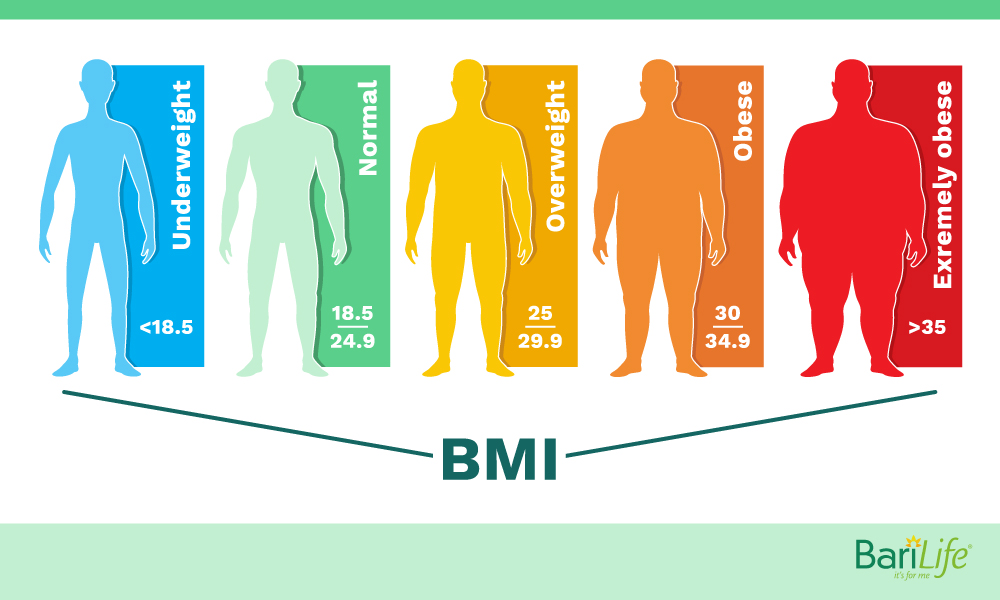
Obesity-related diseases
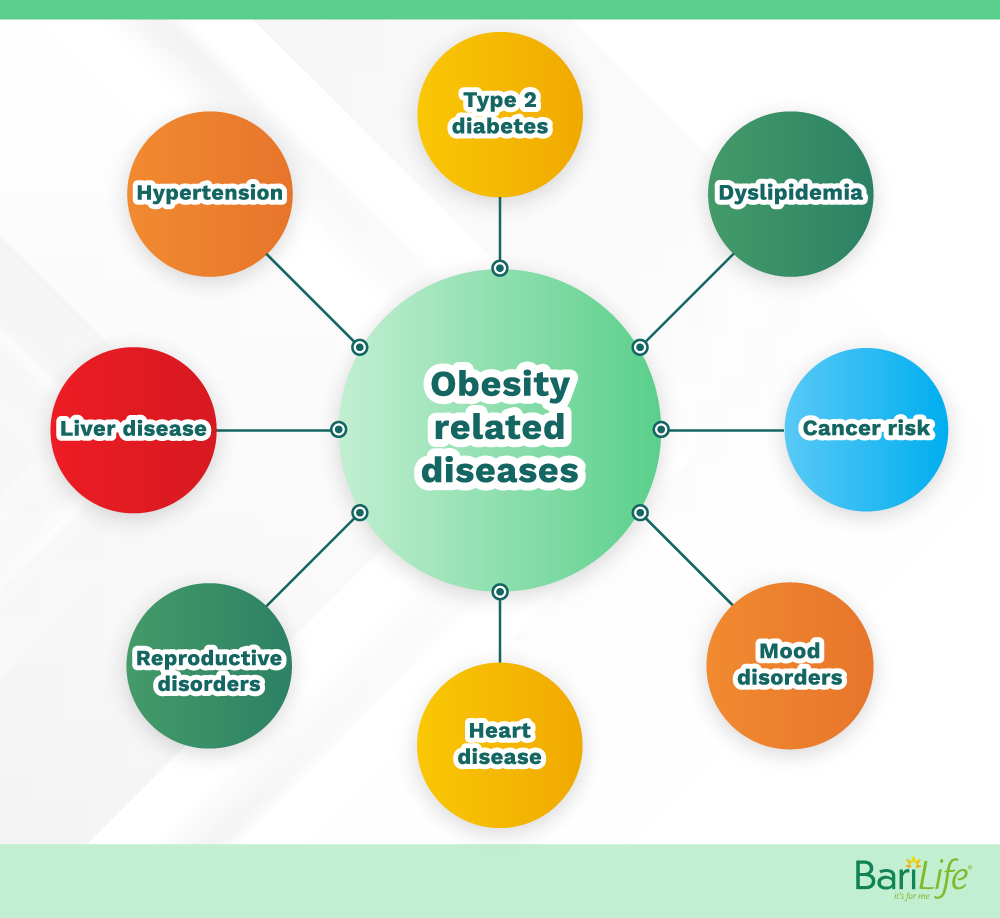
It is important to note that the qualifications for bariatric surgery are not related to your weight alone. It is based on a measurement that factors in both your weight and height. This measurement is called your Body Mass Index or BMI.
BMI is calculated by dividing your weight in kilograms by your height in meters squared.
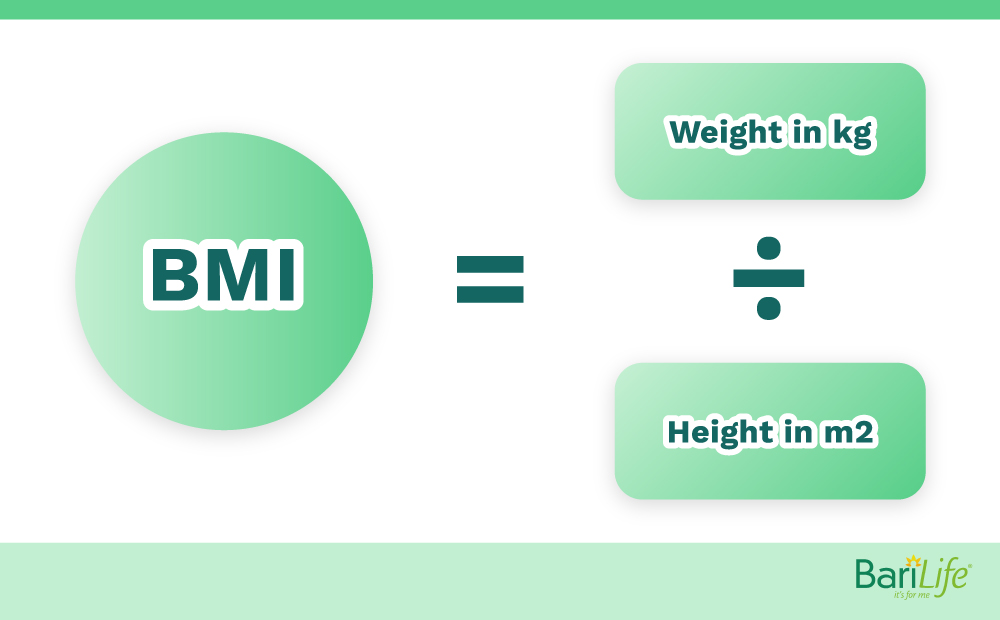
According to the CDC, BMI is often utilized as a screening tool but it is not used as an individual diagnostic measure of body fatness or of overall health. Other health assessments are often needed to evaluate your overall health status. However, in the case of bariatric surgery, BMI can be used as an individual determinant of eligibility.
According to the ASMBS, Obesity-related diseases that may allow you to qualify for bariatric surgery include, but are not limited to…
- Type 2 diabetes
- Non-alcoholic fatty liver disease
- Cardiovascular disease
- Hypertension
- Obstructive sleep apnea
- Some respiratory disorders
- Osteoarthritis
- Lipid abnormalities
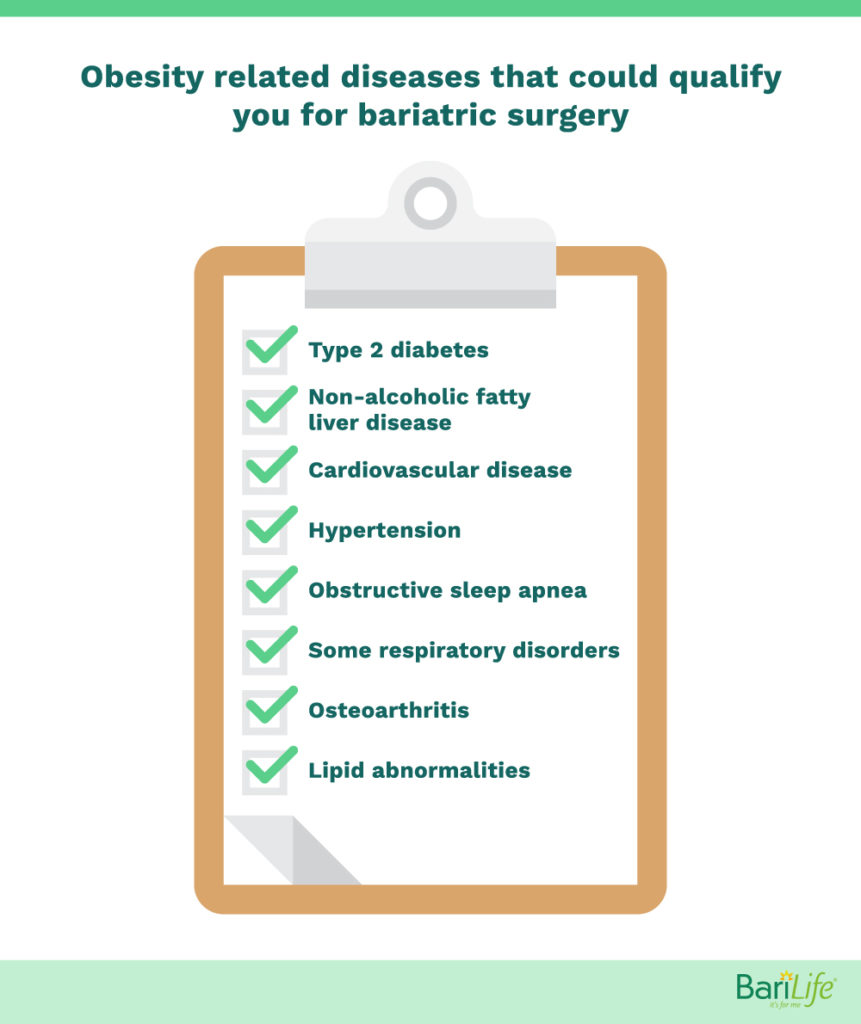
General qualifications
BMI is the primary qualification for the gastric sleeve. If you are suffering from morbid obesity, meaning that your BMI is greater than 40 kg/m2 then you will likely qualify for bariatric surgery based on that factor alone. You may also qualify for the gastric sleeve if you are at least 100lb over your ideal body weight.
If your BMI is 35-39.9 kg/m2 you can still meet the eligibility requirements but your bariatric surgeon may need to evaluate your health status a little bit further. Your surgeon will look at any obesity related diseases that you may have and assess whether they might be improved as a result of the gastric sleeve.
It is more difficult to have the gastric sleeve procedure if your BMI is less than 35. Some people with a BMI between 30-34.9 may be considered for the gastric sleeve but your bariatric surgeon will likely do a more in-depth assessment of your obesity-related diseases and overall health status. This is to ensure your safety, both during and after the procedure, and to assess whether the benefits considerably outweigh the risks.
Insurance coverage
Insurance coverage for the gastric sleeve will vary depending on your insurance provider. However, it is more likely that you will receive insurance coverage if your BMI is greater than 40 kg/m2 or if it is greater than 35 kg/m2 with an obesity related comorbidity, like type 2 diabetes.
It is unlikely for you to qualify for insurance coverage if your BMI is less than 35 kg/m2.
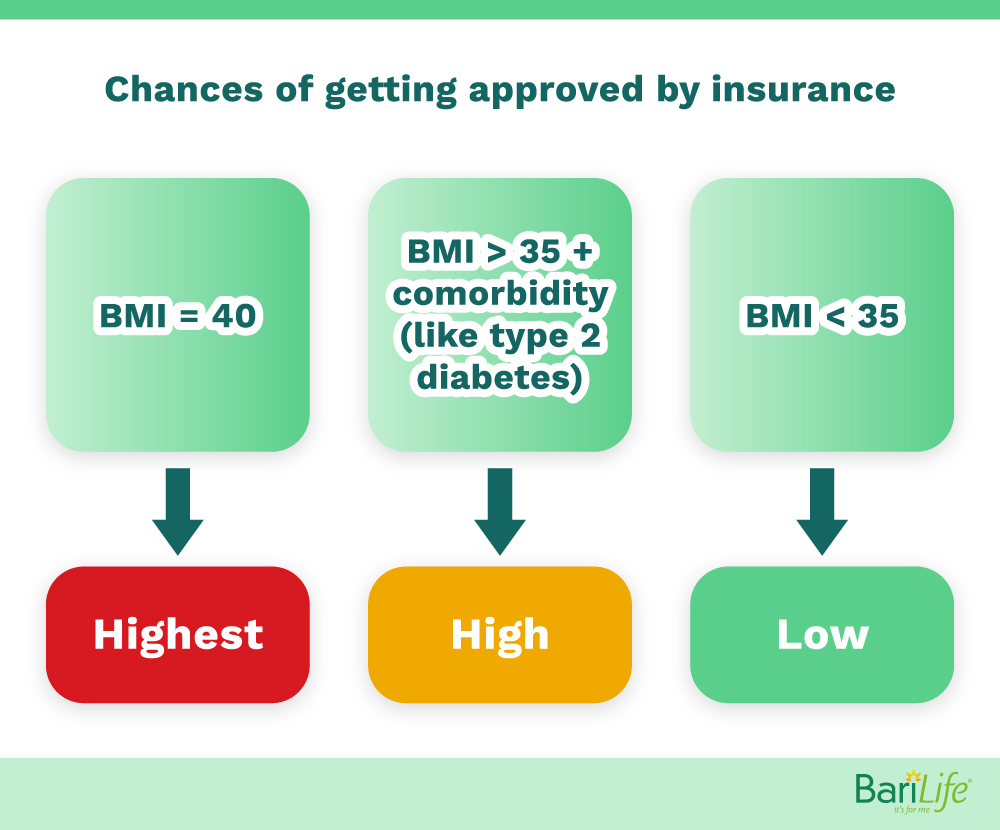
You will also likely need pre-approval for surgery from your physician in order to apply for insurance coverage. In addition, insurance companies often like to see previous failed attempts at weight loss. This may need to be something along the lines of physician-supervised nutrition and weight loss program that did not yield long-term results.
If insurance coverage is not an option for you, you may want to look into the financial benefits related to bariatric surgery and see if the investment could be worth it for you in the long run. The results might just surprise you!
But that’s not all! Even if you meet the qualifications above, it is not a guarantee that you will be able to have the gastric sleeve procedure!
Bariatric surgeons ultimately have a say in whether you are a good candidate for the gastric sleeve. Generally, your bariatric surgeon will look beyond these two factors to determine whether the gastric sleeve is the right fit for you.
Other areas that may impact your eligibility include…
- Age
- Health
- Smoking
- Psychological well-being and behavior
Age
The general age requirements for the gastric sleeve or bariatric surgery in general is 18-60 years of age.
Research suggests that bariatric surgery in patients older than 55 years of age is just as safe and effective for weight loss as it is in patients younger than 55 years of age. However, there is limited evidence on the safety and efficacy of surgery in patients greater than 65 years of age.
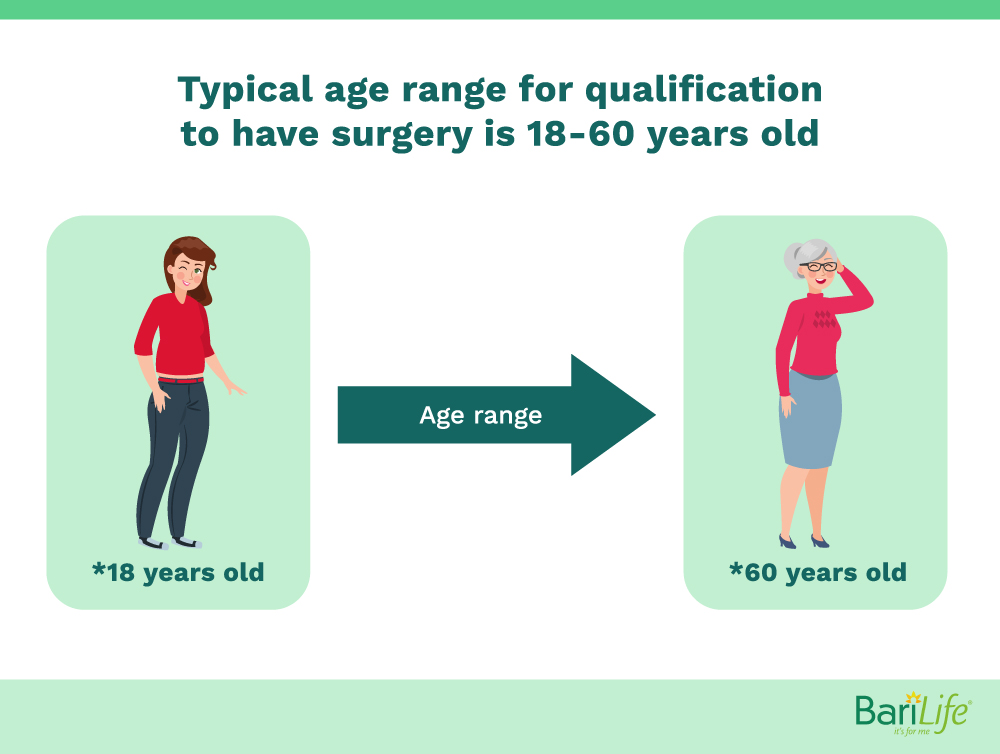
There may be certain circumstances that allow for someone outside of general age requirements to receive bariatric surgery, so don’t hesitate to contact a qualified bariatric surgeon.
Health
Although one of the primary reasons for bariatric surgery is the improvement or resolution of obesity related diseases, there are some serious health conditions that could potentially interfere with your ability to have the procedure.
Examples of these conditions include…
- Blood clotting disorders
- Severe heart disease
- Conditions that prohibit the use of anesthesia
- Conditions that increase your risk of adverse effects related to anesthesia
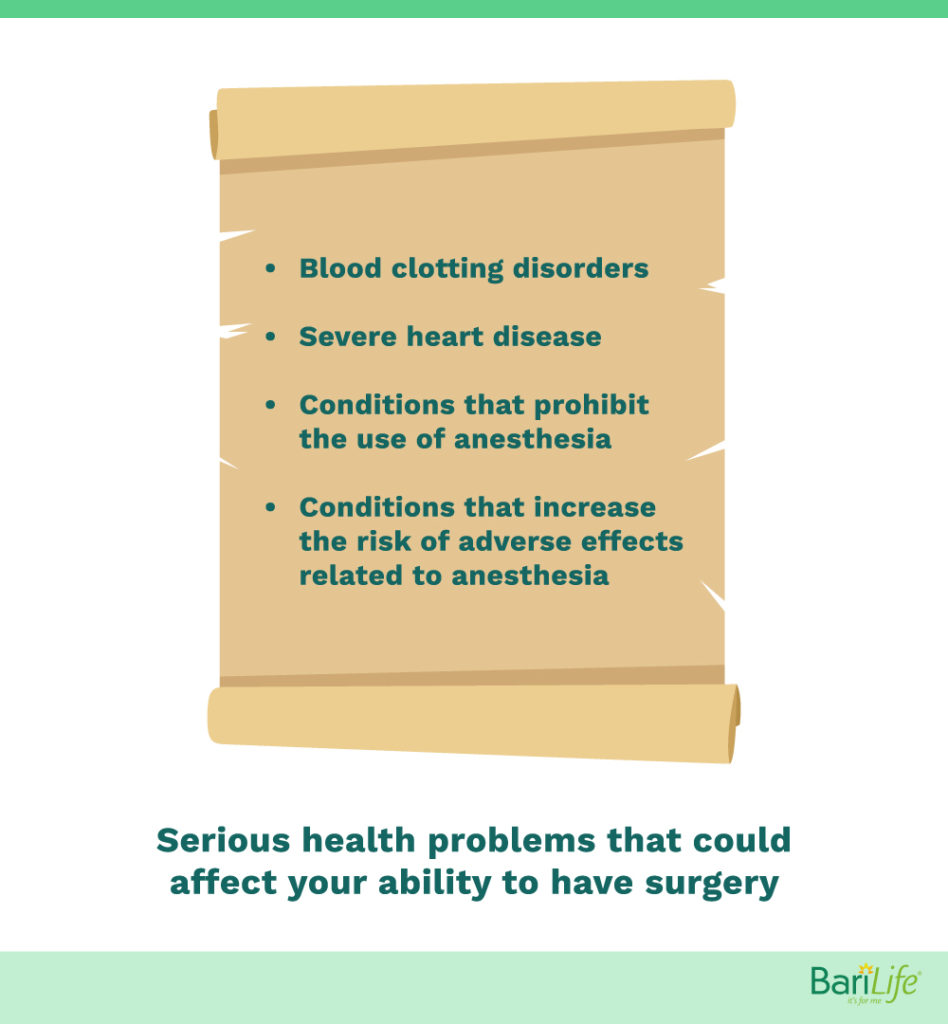
You will likely have a medical exam prior to surgery to identify any unknown medical conditions or any factors that may complicate surgery.
Smoking
If you are a smoker, you will need to make some lifestyle adjustments prior to and following surgery. It is important to consult with your bariatric surgeon to see what you need to do to be eligible for surgery. Your surgeon will likely suggest that you need to quit smoking prior to surgery and refrain from smoking following the procedure.
The amount of time suggested may be a few weeks or even a few months prior to surgery. It is important to follow your surgeons recommendations but if you would like to optimize your outcomes and recovery it may be best to quit smoking at least 3 months prior to surgery.
A study published by Surgical Endoscopy found that smoking around the time of bariatric surgery can lead to negative or adverse effects following surgery. Results from the Michigan Bariatric Surgery Collaborative revealed that people who quit smoking 3 months before the gastric sleeve procedure showed a near elimination of risks associated with smoking.
This means if you are a smoker and you want to decrease your risk of complications related to smoking following surgery then you should aim to quit smoking at least 3 months prior to the procedure.
Psychological well-being and behavior
In order for the gastric sleeve to yield the best possible results, you will need to make serious lifestyle and dietary changes. Your overall mental health and willingness to comply with the treatment plan are important factors in determining if you are a good candidate.
Your physician along with a qualified team of health care providers will assess a variety of areas to determine your readiness for the procedure. The assessment will typically evaluate a number of areas including, but not limited to your…
- Level of motivation
- Weight loss history
- Eating behaviors
- Mood disorders
- Alcohol and drug use
- Suicide risk
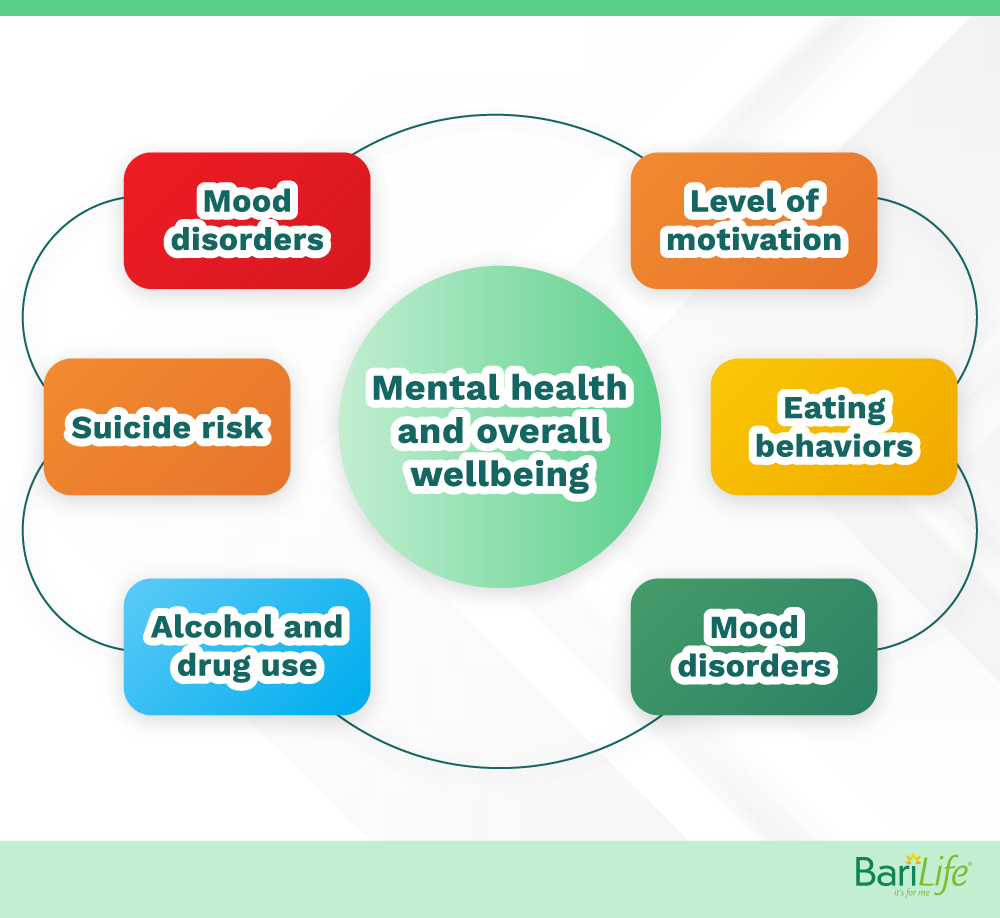
Your team of bariatric health care providers will assess whether you are motivated to make the necessary lifestyle changes. They will evaluate to make sure you are getting the surgery for the appropriate reasons. They will also want to know more about your diet and weight loss history, what has worked for you, what has been challenging, and reasons you can’t lose weight or the reasons you regain weight following weight loss.
Depression, anxiety, bipolar disorder or other mood disorders are associated with obesity. These conditions can lead to difficulties in weight management.
People with untreated mood disorders may also find it difficult to stick with new diet and exercise habits after surgery. This may not prohibit you from having the surgery but lead to modifications in treatment preparation and plans prior to and following the procedure. There is an increased risk of suicide following weight loss surgery so a full assessment of mental health is important prior to surgery.
Alcohol and drug abuse, if uncontrolled or untreated, may lead to a lack of eligibility for the procedure. Problems with alcohol or drug use, like smoking, are associated with poor weight loss outcomes and continued substance use following surgery.
Next steps
If you are interested in the gastric sleeve and you feel that you meet the eligibility requirements listed above, or you would like to discuss questions regarding eligibility please contact a reputable bariatric surgeon. It is important to find a good bariatric surgeon along with a qualified team of bariatric health care professionals who can support you throughout the entire surgical and recovery process.
While working with your surgeon and healthcare team, it is vital to answer all questions honestly and fully because this information will be used to help prepare you for the procedure and the necessary lifestyle modifications. Your team of bariatric healthcare professionals will help you to make an informed decision regarding surgery and, if you decide it’s the right fit, they will help you to achieve the best outcomes following the procedure.



What are your tips and tricks to post-bariatric success?